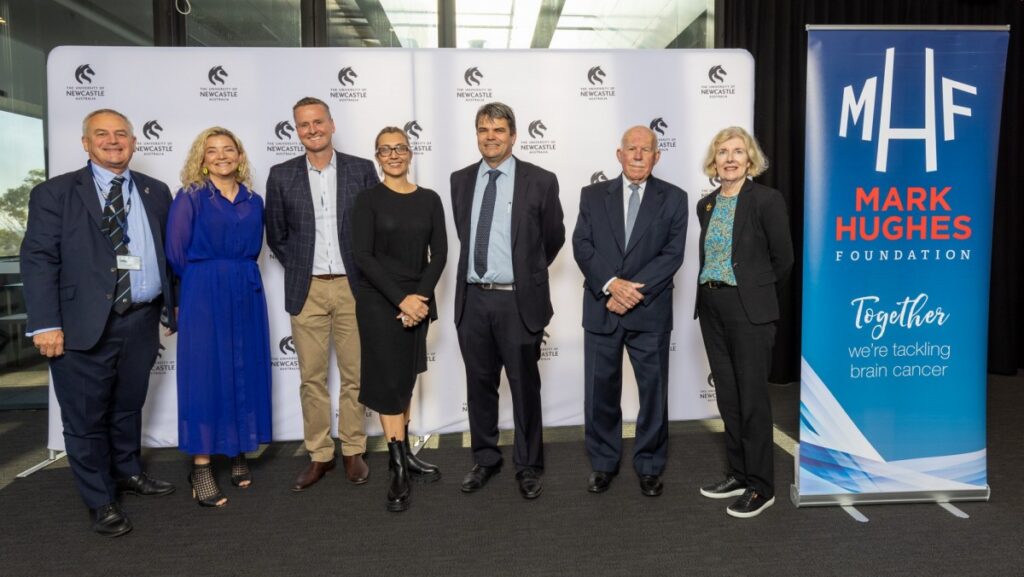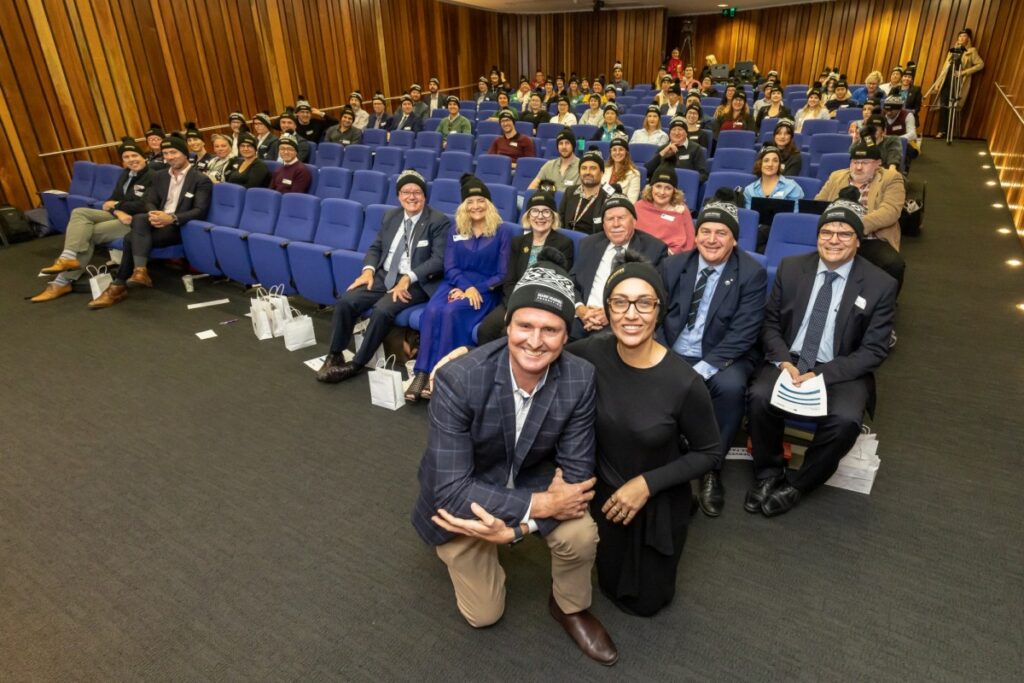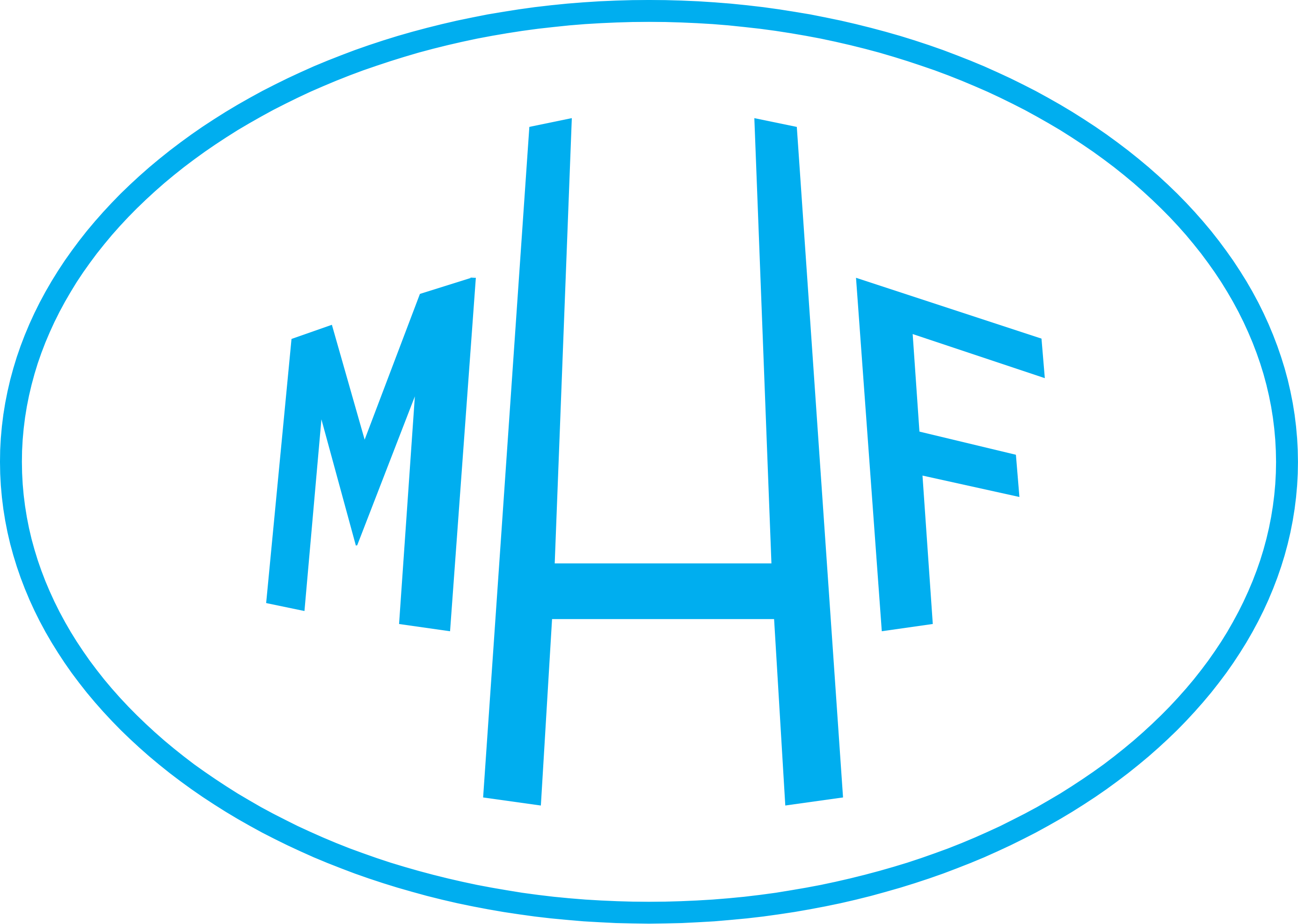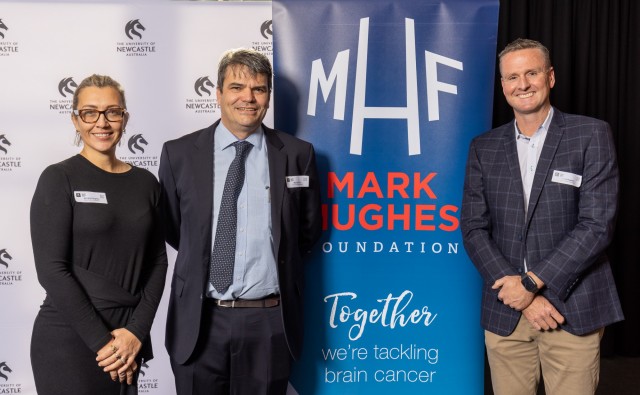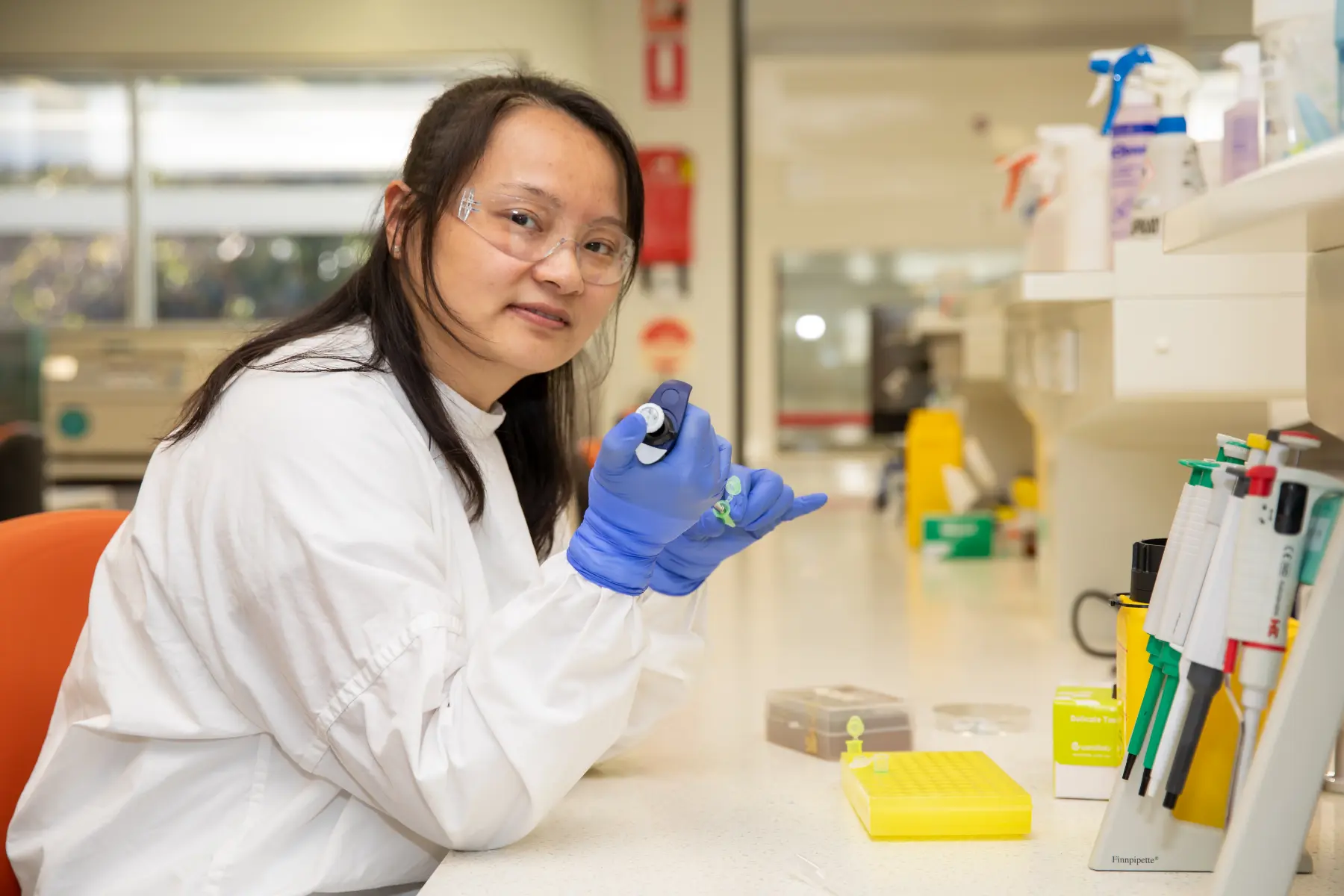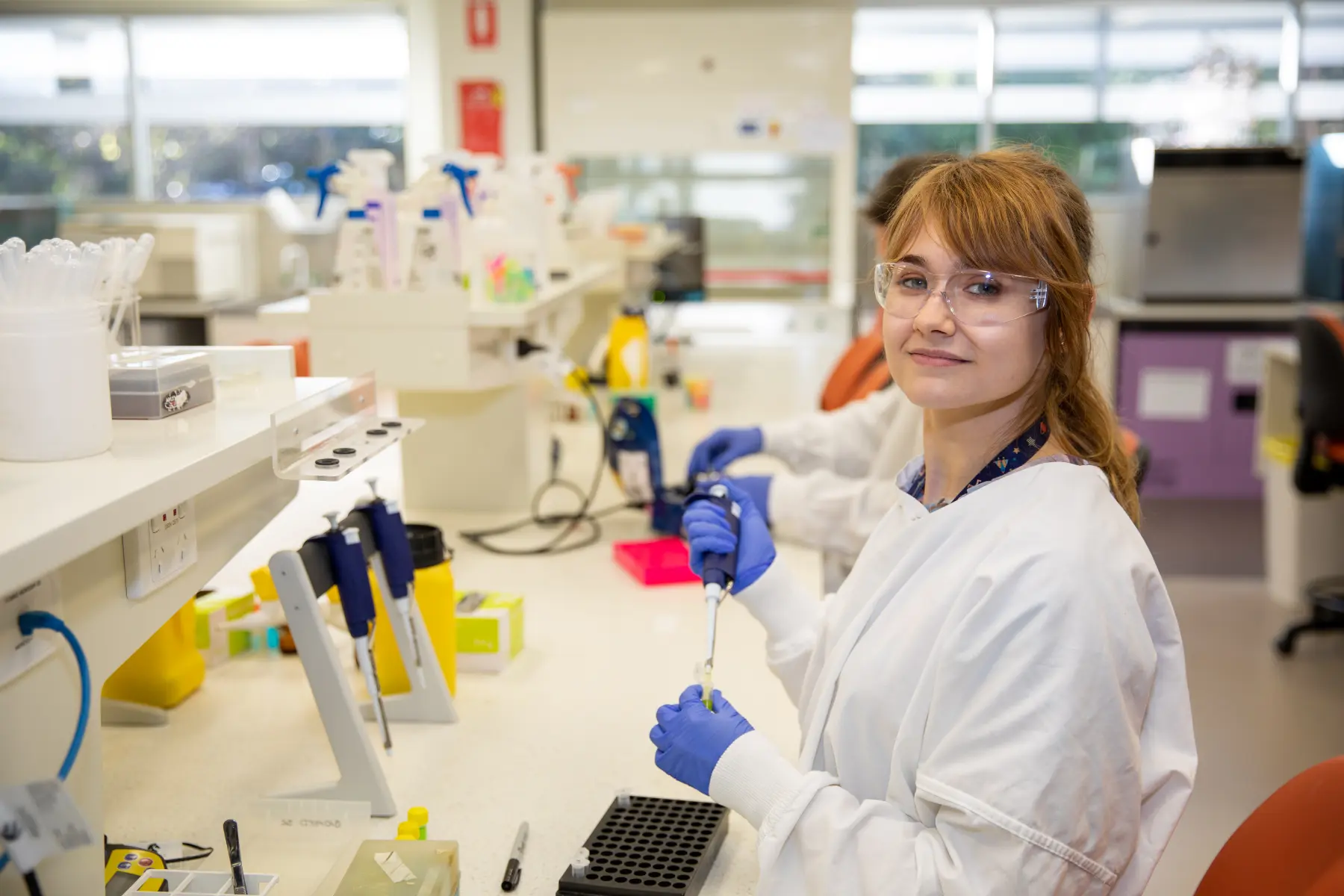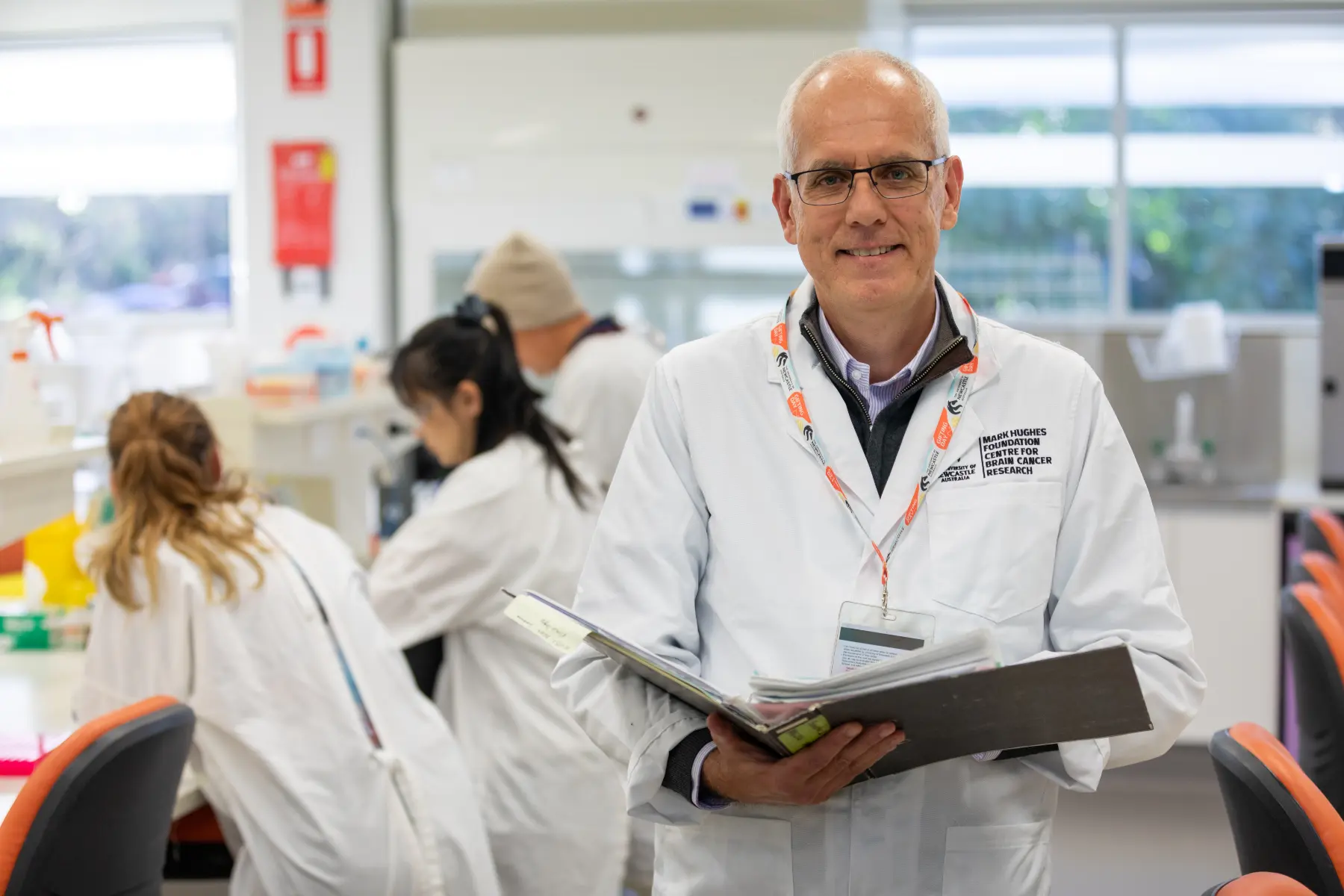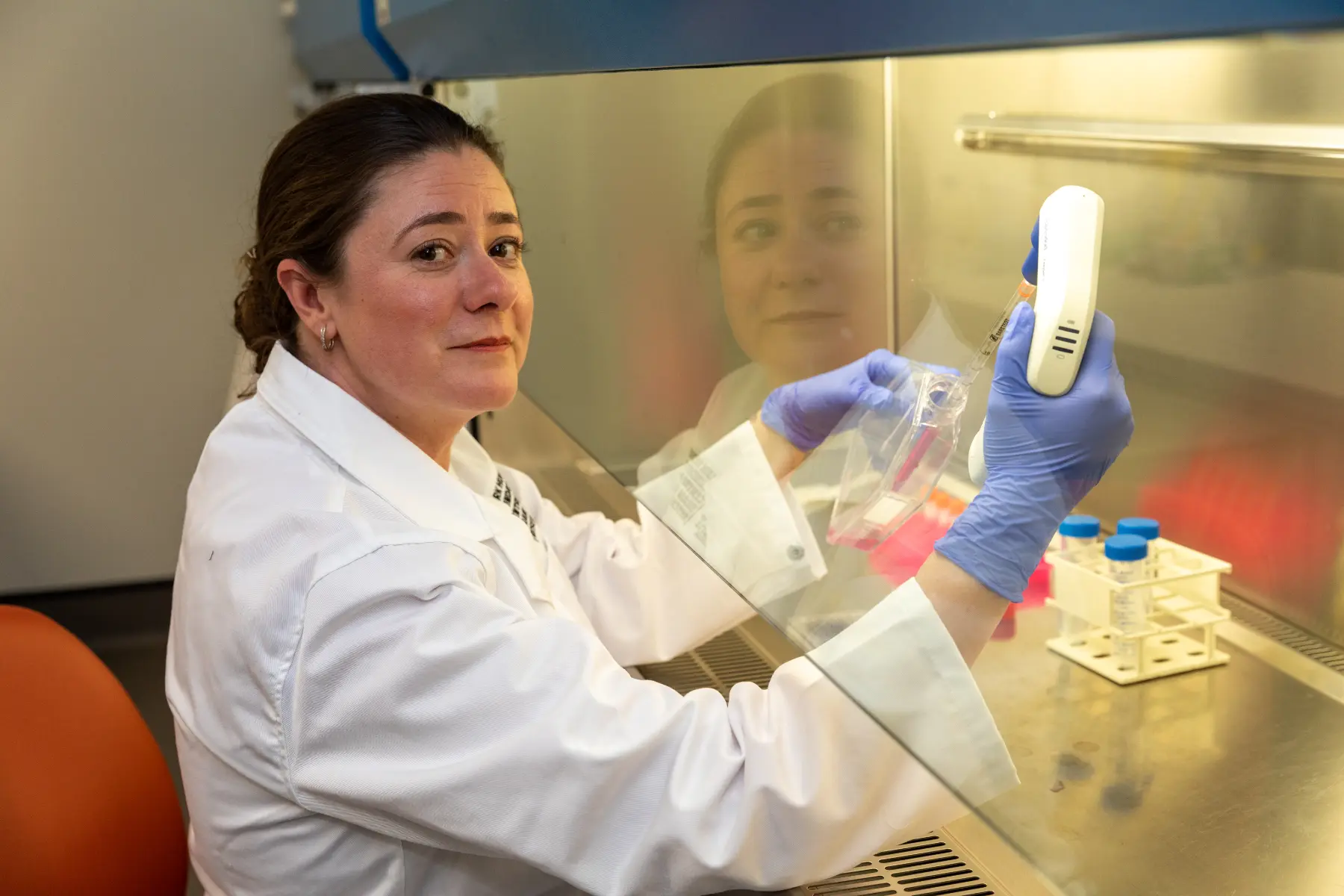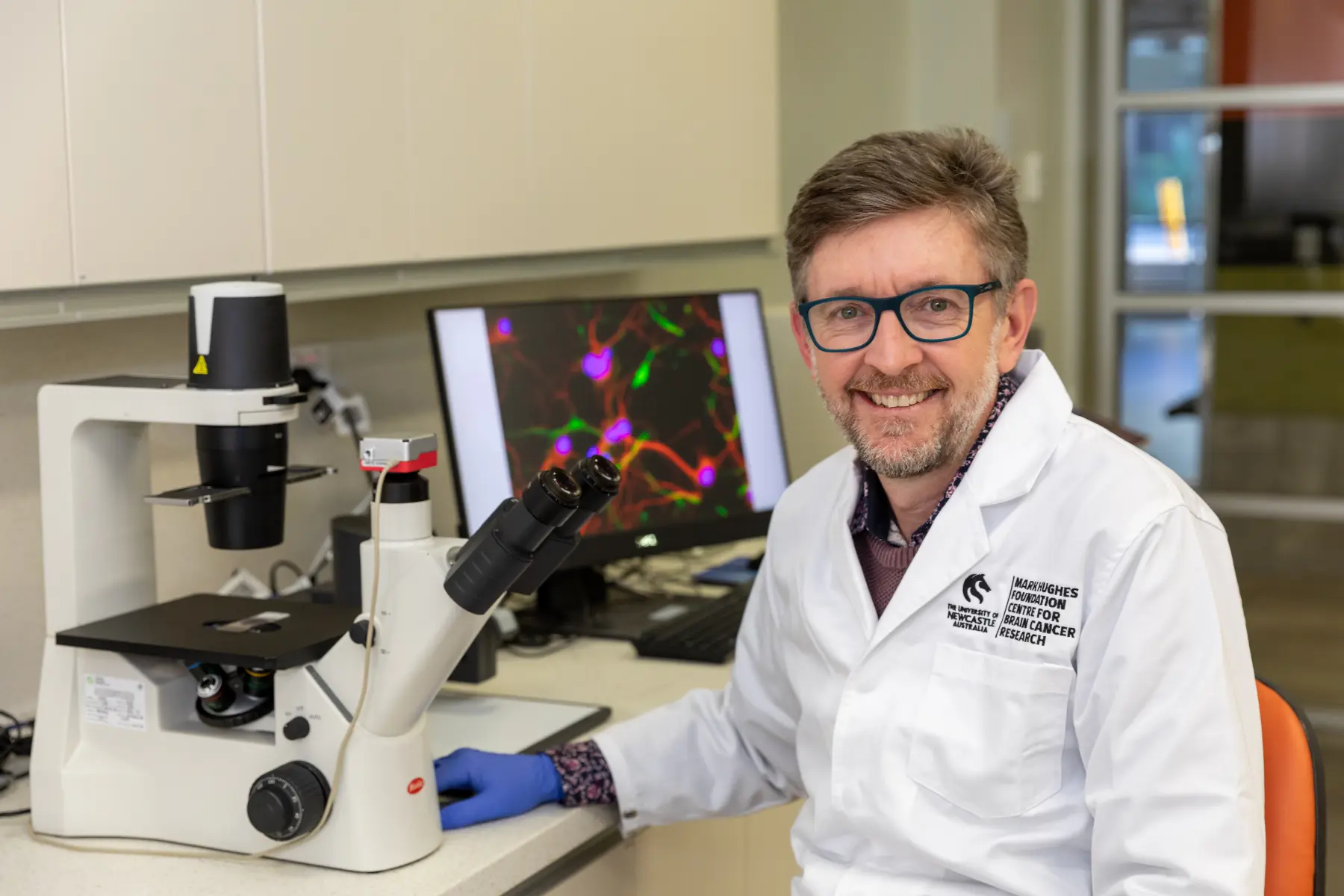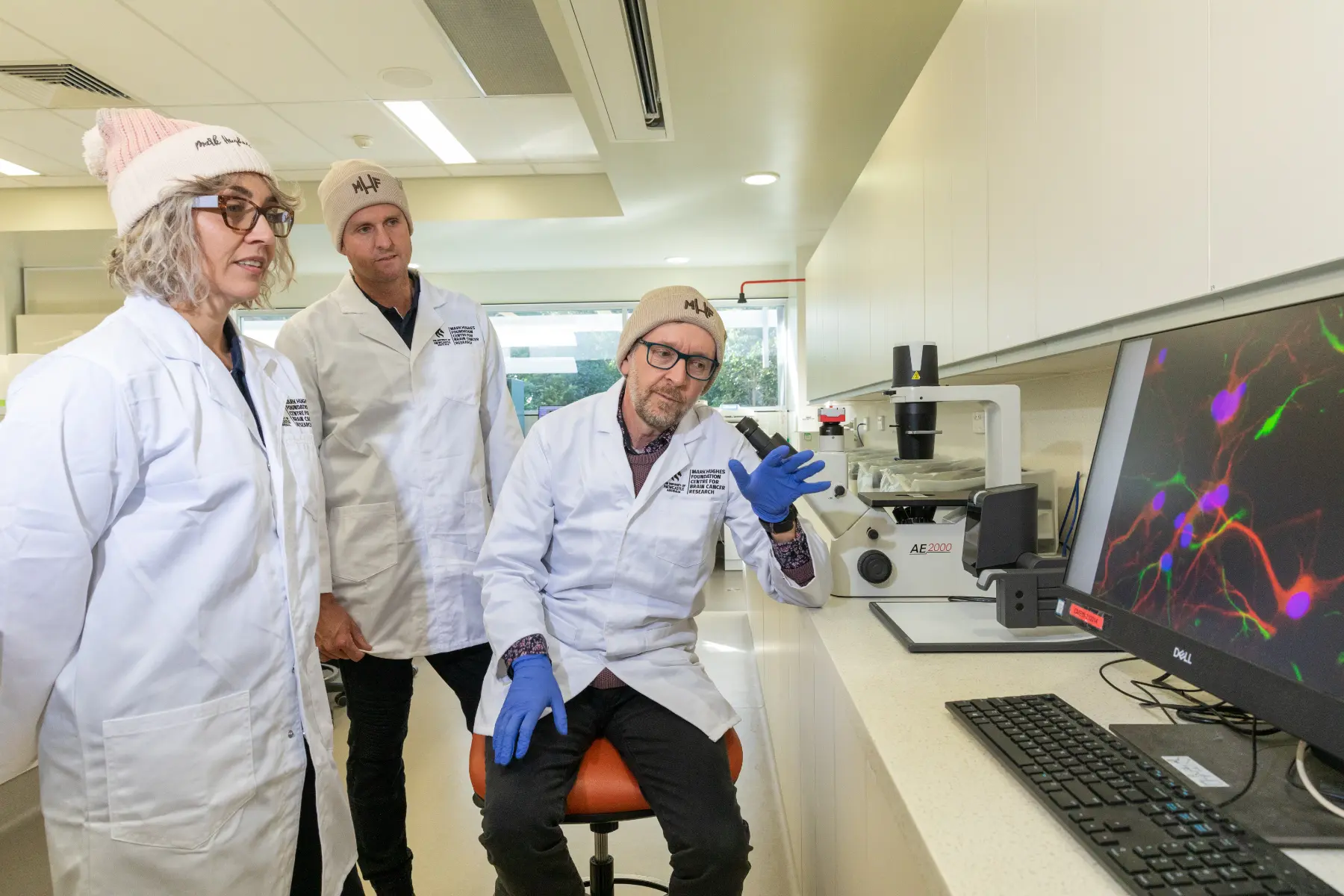With the end game being a cure for brain cancer, the niche collective of more than 120 experts showcased recent research developments and identified additional ways to collaborate and accelerate their mission.
Mark Hughes Foundation Centre for Brain Cancer Research Chair and Director, Professor Mike Fay, said the event was inspiring as researchers revealed their progress in the goal to improve outcomes for brain cancer patients and their loved ones.
The experts, who travelled from Adelaide, Melbourne, Brisbane, Sydney and joined virtually from the USA, explored the Centre’s six research streams: patient experience, paediatric brain cancer, experimental therapeutics, brain cancer imaging, translational neuroscience and blood-based biomarkers.
“Many of the researchers involved had projects previously funded by the Mark Hughes Foundation,” Professor Fay said.
“This research symposium was comparable to building a team – a brain cancer team that’s forming a united front across the country, to focus on developing better treatments and outcomes for patients.
“I think the idea of clinicians and scientists working collaboratively is really effective and turbocharges our efforts. We’re exploring how we can share resources like the biobank and how we can make best use of the data that we’re collecting.”
Professor Fay said a key highlight of the symposium was discussion of the race to develop an early detection blood test for brain cancer by identifying blood markers.
Brain cancer is the leading cause of cancer death in children, and adults aged under 40 in Australia, yet alarmingly outcomes have not improved for more than 30 years.
Former Newcastle Knights NRL and NSW Origin player Mark Hughes said he was inspired by the symposium discussion and confident the ‘team’ of researchers would deliver on their mission.
“We’re in the right place at the University of Newcastle. We’ve got the right people around us so we’re going to create some real history and we will have better outcomes, better medicines, better treatments but most of all, our end goal, which I believe will happen at some point, will be that we do find a cure for brain cancer,” Mark said.
The paediatric team presented on the work it has achieved with innovative treatment approaches, while the MHF brain cancer care co-ordinators presented highly compelling patient stories showing the importance of their role.
Professor Frances Kay-Lambkin showcased her valuable work supporting carers through CarerWell, a program with potential to roll out nationally.
Professor Fay said the symposium featured presentations on DNA repair and new drugs which could disrupt this process and improve response to treatment.
Methods of integrating new tumour imaging into treatment workflows and the benefits of spectroscopy were also outlined.
“Presentations on interactions of nerves and the tumour was a particular highlight. The translational neuroscience team, led by Professor Hubert Hondermarck, highlighted the emerging role of neurons in brain cancer.
“Until now, the brain was known to be invaded by brain cancer cells, leading to the many distressing neurological symptoms observed in the disease, but brain cells (neurons) were thought to have no active role in the development of brain cancer.
“Interestingly, recent studies, including from MHF laboratories, have discovered that neurons actively participate in the growth of brain tumours.
“In fact, the neurotransmitters normally produced by neurons for the transmission of information between neurons, are used by cancer cells to multiply and invade the brain. Brain cancer cells are literally parasitising neuronal synapses to fuel their invasion of the brain.
“This is of considerable therapeutic potential, and the researchers think that neuropsychiatric drugs, which are able to control the activity of neurotransmitters, could be repurposed for the treatment of brain cancer.
“This new and ambitious hypothesis needs to be explored and the MHF symposium has set the basis for future scientific and medical collaborations to develop new innovative therapies that would be more effective against brain cancer.”
Established in 2022 based on long and successful partnership committed to the same mission, the Mark Hughes Foundation Centre for Brain Cancer Research at the University of Newcastle is driving critical research, education, and health care improvements at a national scale for brain cancer patients, their families and carers, and health professionals.
Further information about the University of Newcastle MHF Centre for Brain Cancer Research.

